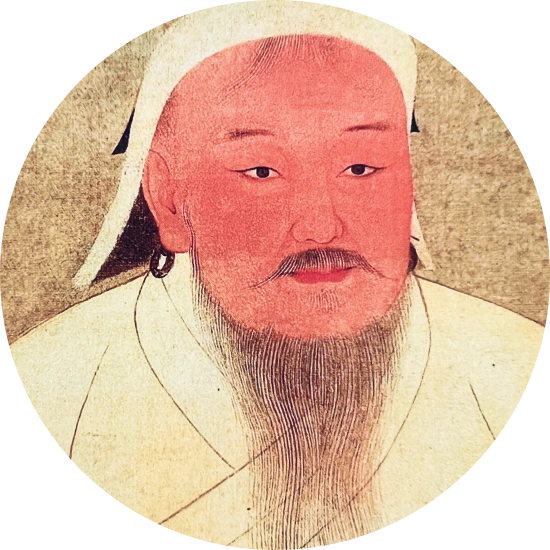

The last name "Kang" has its origins in several countries, primarily in East Asia. In Korea, "Kang" is a common surname, ranking 21st in terms of population. The Korean surname "Kang" (강) can have different Chinese character origins and meanings. It can either be derived from the Chinese character "Jiang" (姜), which means "ginger"; or from the Chinese character "Kang" (康) meaning "well-being" or "health." In China, "Kang" (康) is a less common surname compared to other more prevalent names. The character "Kang" can have multiple meanings in Chinese, including "health" or "peace." It is worth noting that surnames often have multiple origins and can differ depending on the specific region or family lineage.
Regarding the ethnicity associated with the surname Kang, the Decennial U.S. Census data reveals that the majority identify as Asian/Pacific Islander. From 2000 to 2010, there was a slight increase in this group, from 92.45% to 93.86%. During the same period, there were declines among those identifying as White (from 4.19% to 3.08%), Black (from 0.71% to 0.56%), and American Indian and Alaskan Native (from 0.07% to 0.03%). However, the proportion of individuals identifying as Hispanic showed a rise, from 0.46% in 2000 to 0.67% in 2010. Those identifying with two or more races also decreased from 2.12% in 2000 to 1.81% in 2010.
| 2000 | 2010 | Change | |
|---|---|---|---|
| Asian/Pacific Islander | 92.45% | 93.86% | 1.53% |
| White | 4.19% | 3.08% | -26.49% |
| Two or More Races | 2.12% | 1.81% | -14.62% |
| Hispanic | 0.46% | 0.67% | 45.65% |
| Black | 0.71% | 0.56% | -21.13% |
| American Indian and Alaskan Native | 0.07% | 0.03% | -57.14% |
NomOrigine computes an ancestry breakdown for each customer. People may have ancestry from just one population or they may have ancestry from several populations. The most commonly-observed ancestry found in people with the surname Kang is Korean, which comprises 68.1% of all ancestry found in people with the surname. The next two most common ancestries are Chinese (17.4%) and Northern Indian & Pakistani (3.1%). Additional ancestries include British & Irish, French & German, Indonesian, Thai, Khmer & Myanma, Spanish & Portuguese, and Japanese.
Ready to learn more about your ancestry? Get the most comprehensive ancestry breakdown on the market by taking our DNA test.
| ANCESTRY BREAKDOWN | COMPOSITION |
|---|---|
| Korean | 68.1% |
| Chinese | 17.4% |
| Northern Indian & Pakistani | 3.1% |
| Other | 11.4% |

Genghis Khan, the Mongolian conqueror that lived from 1162 to 1227 CE, was likely a member of haplogroup C-M217, and may be responsible for the spread of one of its branches. Half of a percent of all men on Earth, and 8% of men in the region reaching from northeastern China to Uzbekistan, may descend from Genghis Khan. His lineage is most common in Hazara, Mongolian, Uygur, Chinese Kazak, and Inner Mongolian Han populations.
Members of haplogroup D are found in both northern and southern Han Chinese populations at low to moderate frequencies. The Han people, who all share the same language and similar cultural practices, are the largest ethnic group in the world, with about 1.2 billion people. Historical evidence shows that Han people are descendants of the ancient Huaxia tribes that come from northern China, and Han language and culture only expanded into southern China in the last 2,000 years. The spread of Han people and culture from northern to southern China was likely driven by warfare and famine in the north.

The surname Kang has multiple origins and meanings across different cultures. In Korean, Kang (강) means "river" or "strong." It is a common surname in Korea and holds various historical lineages. The name Kang originates from the ancient kingdom of Goguryeo, one of the Three Kingdoms of Korea. According to legend, the Kang clan descends from King Yuri, the founder of Goguryeo. Today, many Koreans with the surname Kang can trace their ancestry back to this early kingdom.
In Chinese, the surname Kang (康) carries a different meaning. As a Chinese surname, Kang denotes "health" or "well-being." It can also be associated with the word "peace." The Kang surname has its roots in ancient China and holds historical significance. Notably, the Kang family played a prominent role during the Western Han Dynasty. Over time, the Kang surname spread to various parts of China, and it is still prevalent today amongst Chinese communities worldwide.
The last name Kang is a relatively common surname in several countries across the world. It has its roots primarily in China and Korea, where it is one of the most prevalent surnames. In China, the Kang surname is found in various regions, including Shandong, Henan, and Shaanxi provinces. In Korea, Kang is one of the most common surnames, and individuals with this last name can be found throughout the country. Additionally, due to migration and globalization, the Kang surname has also spread to other parts of the world. Significant populations of individuals with the last name Kang can be found in North America, particularly in the United States and Canada, as well as in Australia and Europe. Overall, the geographical distribution of the last name Kang indicates a widespread presence in East Asia, with diaspora communities in various other regions.
The last name Kang, originating from East Asia, particularly Korea and China, has various variations and spellings due to transliteration and historical factors. In Korea, the last name Kang is transliterated from its Hangul form 강, and can also be spelled as Gahng, Gang, or Kong, depending on the pronunciation and the dialect. In Chinese, the last name Kang is commonly spelled as Kang, but it can also be spelled as Kung or Hong, when Romanized from Mandarin. Overseas, in English-speaking countries, the last name Kang may retain its original spelling or can be spelled as Khang or Khaang, based on individuals' preferences or the influence of regional accents. The variations and spellings of the last name Kang help distinguish the different origins and identities of the individuals who carry it, while also reflecting the intricacies of language and cultural diversity across East Asia and beyond.
One of the most well-known figures with the last name Kang is Kang Ho-sung, a highly acclaimed South Korean actor. Renowned for his versatile range of roles, Kang has mesmerized audiences with his talent and on-screen presence. Some of his notable works include movies like "Oldboy," "The Host," and "Snowpiercer," where he has consistently delivered exceptional performances, earning him prestigious awards and international recognition.
Another notable Kang in the entertainment industry is Kang Daniel, a South Korean singer-songwriter and former member of the popular boy group, Wanna One. Known for his captivating stage presence and smooth vocals, Kang Daniel has built a successful solo career, gaining a massive following worldwide.
Outside the realm of entertainment, Kang Kyung-wha, a distinguished South Korean diplomat, deserves recognition. She became the first female Minister of Foreign Affairs in South Korea's history, bringing her extensive experience and expertise to international diplomacy.
These noteworthy individuals with the last name Kang have made significant contributions in their respective fields, etching their names in history for their remarkable achievements.
The last name Kang originates from East Asia, particularly from Korea and China. In Korea, Kang is a relatively common surname, ranked as the 18th most common in the country. The origin of the Kang surname in Korea can be traced back to ancient times, with various clans using this surname. One prominent clan is the "Cheonju Kang" clan, which claims descent from Cheonjiwang, a legendary figure from Korean mythology. The Kang surname is also found in China, where it is most commonly spelled as "Kang" or "Kang Ju." In Chinese genealogy, Kang is often regarded as a rare and prestigious surname, with historical records dating back to the Zhou Dynasty. As with many East Asian surnames, the Kang surname often has multiple origins and branches, making genealogical research a complex but fascinating endeavor.
Chargement de la carte...
Enter the surname you are looking for below:
surnames > kan-arsi
The last name "Kan Arsi" is of Turkish origin. It is derived from the words "kan" meaning blood and "arsı" meaning plentiful or abundant. This surname was likely given to someone ...
surnames > kan-jan
The origin of the last name "Kan Jan" is likely Chinese. "Kan" and "Jan" are common Chinese surnames, and when used together, they may form a compound surname or be a variant of an...
surnames > kan-tiba
The last name "Kan Tiba" is of Japanese origin. It is derived from the Japanese words "kan" meaning "view" or "look" and "tiba" meaning "shore" or "coast".
surnames > kan-del
The surname "Kan Del" is of Turkish origin. It is derived from the Turkish word "kan" meaning blood, and "del" meaning brave or daring. The surname likely originated as a descripti...
surnames > kana-ram
The last name "Kana Ram" is of Indian origin. It is a combination of the Sanskrit words "Kana" meaning grain or a particle, and "Ram" which refers to the Hindu deity Lord Rama.
surnames > kanaa
The last name Kanaa originates from Arabic and is commonly found in Middle Eastern countries such as Lebanon and Syria. In Arabic, "Kanaa" means "desire" or "wish." It is possible ...
surnames > kanaan
The last name "Kanaan" is of Arabic origin. It is primarily found among Arab populations, particularly in Lebanon, Syria, and Palestine. The name is derived from the Arabic word "K...
surnames > kanabar
The last name "Kanabar" is of Indian origin. It is believed to be derived from the Gujarati word "kanabar," which means a person who is a trader or merchant. This surname is common...
surnames > kanacan
The last name "Kanacan" is of Filipino origin. It is derived from the Tagalog word "kanakan," which means "baby," "young," or "small."
surnames > kanachery
The last name "Kanachery" is of Indian origin. It is derived from the place name "Kanachery" in the state of Kerala, India. The name likely indicates that the original bearers of t...
surnames > kanacho
The last name Kanacho likely has origins in Japan. It may be derived from a Japanese word or place name.
surnames > kanag
The last name "Kanag" is of Turkish origin. It is a surname derived from the given name "Kanak," which means "gold" in Turkish.
surnames > kanagala
The last name Kanagala is of Indian origin. It is likely derived from the place name Kanagal, which is a village in the state of Karnataka in southern India. The surname may indica...
surnames > kanagan
The last name "Kanagan" is of Irish origin. It is derived from the Gaelic name "Ó Canagáin," meaning "descendant of Canagan," which is a personal name of uncertain origin.
surnames > kanagandula
The surname Kanagandula is of Indian origin, specifically from the Telugu-speaking regions of India. It is derived from the Sanskrit words "kana", meaning gold, and "gandula", mean...